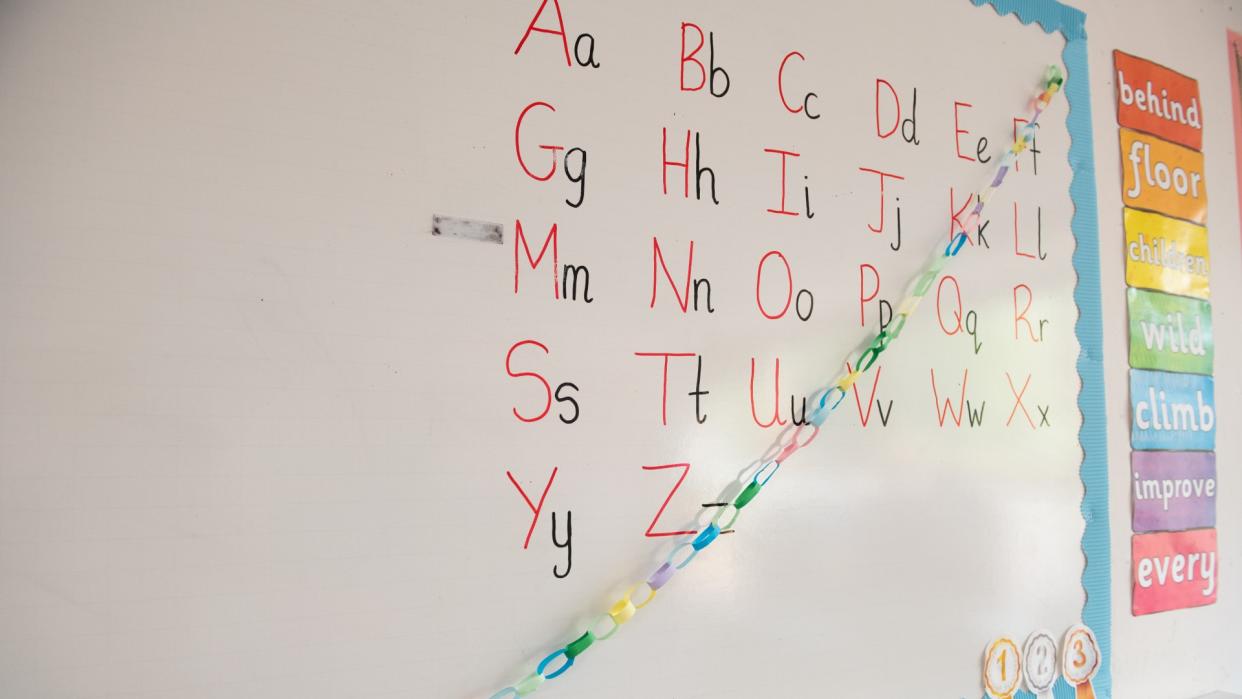Spelling out why the 'science of reading' movement is winning the Reading Wars

How we teach children to read has been a contentious issue in the United States for decades, a debate that has "occasionally grown so vicious it's been dubbed the Reading Wars," Vox reported. On one side are the proponents of the "science of reading" movement, a phonics- and cognitive-based instructional method. The opposing side champions "balanced literacy," emphasizing word recognition and context clues.
Policies have vacillated back and forth for over a century, but since 2019, the science of reading camp "has scored a victory that, if not permanent, is at least decisive," Vox pointed out. More than 40 states have passed laws during the past five years to reform reading instruction to be more aligned with cognitive research. Amid "an era of intense politicization of education," the push toward revamping reading instruction has garnered "rare bipartisan consensus," per The New York Times.
After years of back-and-forth, the tide is turning, and the science of reading movement is sweeping the nation.
The 'science of reading' vs 'balanced literacy'
The general philosophy of the science of reading is that "teaching strategies should align with a wide body of cognitive research on how young children learn to read," per the Times report. The strategies align with decades of research that shows that in addition to broadening their vocabulary, "children need to understand phonics, or the relationship between letters and the sounds of spoken language," the outlet added. Studies show that many students need "explicit, carefully sequenced instruction in the letter combinations and spelling patterns that form the English language." Without it, they may struggle to become competent readers. Leading brain researchers and parents of children with dyslexia have been among those pushing for more science-backed instruction.
The recent turn towards the "science of reading" contrasts with the balanced-literacy theories that heavily influenced how teachers were instructed to teach reading over the past two decades. Balanced literacy puts a greater emphasis on surrounding kids with books that interest them so they can spend classroom time quietly reading. Phonics instruction is still a part of this kind of teaching methodology but in a less structured manner. Instead of teaching phonics sequentially, teachers might discuss letter-sound relationships as they come up. Critics say balanced-literacy instruction often relies on discredited strategies that educators and researchers said "leaves children ill-prepared to tackle more difficult texts, without illustrations, as they get older."
How the science-backed movement took over
The wave of reading laws calling for more cognitive-based reading curricula "traces its roots to four main factors," Rachel Cohen wrote for Vox. It began five years ago with "an influential radio series" by the journalist Emily Hanford, which critically examined how popular teaching strategies in America contradicted existing neuroscience and cognitive psychology research about the best ways for kids to learn to read. Her reporting helped launch the "science of reading" movement.
The second factor was when Mississippi's national test score rankings soared a year after a significant overhaul of the state's reading policies, including an embrace of the "science of reading." The third was "the emergence in the 2010s of national grassroots networks of parents of children with dyslexia," Cohen added. The parents have "brought their organizing prowess to bear for new state policies" that better suited their kid's needs.
"And lastly, but no less important, was the pandemic, which fueled a major drop in student achievement and sparked an infusion of new federal funds for schools," she concluded.
Not everyone is on board with the shift toward cognitive research-based instruction. In the rush to recoup pandemic learning loss, schools are "scrambling in the wrong direction," Susan Engel, developmental psychology senior lecturer and founding director of the Program in Teaching at Williams College, and Catherine Snow, professor of cognition and education at the Harvard Graduate School of Education, wrote in a Washington Post op-ed. While fixating on teaching phonics to combat the loss, educators are "shortchanging something of equal importance: the role knowledge plays in helping children become good readers."
While correctly identifying sounds, letters, and words is critical for comprehension, "it is not enough," they opined. Students need to connect what they are reading to what they already know in order to be effective readers. "Unfortunately, U.S. schools emphasize decoding words over helping children acquire knowledge," they added.

